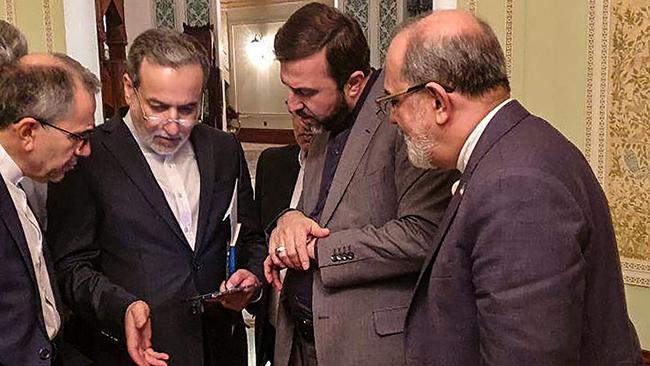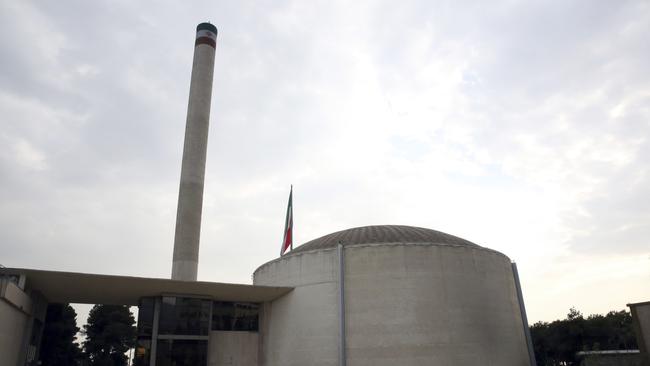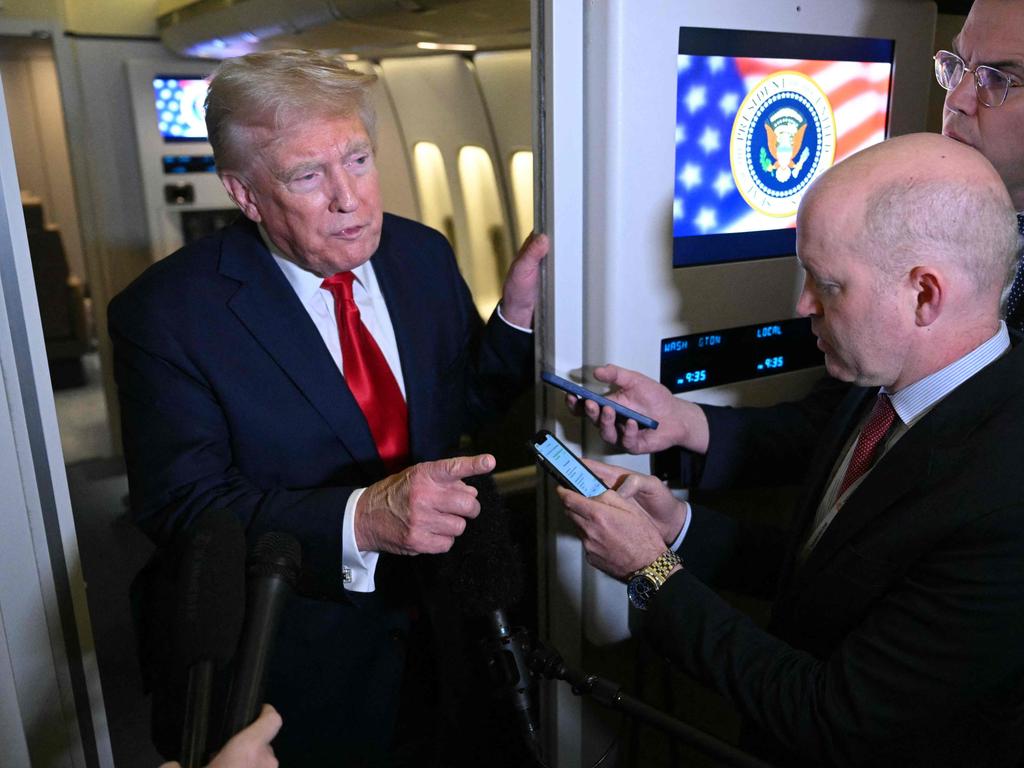Witkoff in apparent reversal says Iran must halt nuclear enrichment
A day after he said Iran could continue low-level enrichment, envoy Steve Witkoff appears to backtrack.

US special envoy Steve Witkoff appeared to backtrack on comments that Iran could be allowed to enrich uranium at a low level in a new nuclear deal with the Trump administration, saying Tuesday that Tehran would have to abandon its enrichment program.
“A deal with Iran will only be completed if it is a Trump deal,” Witkoff wrote in a post on X, adding that “Iran must stop and eliminate its nuclear enrichment and weaponization program.”
Witkoff’s statement ran counter to the position he outlined a day earlier when he indicated that limited enrichment could be allowed if it was subject to stringent verification and other steps were taken to prevent Tehran from being able to make a nuclear weapon.
“They don’t need to enrich past 3.67 per cent,” Witkoff said Monday night on Fox News. “This is going to be much about verification on the enrichment program and then ultimately verification on weaponization.”
The comments were broadly seen as a sign that the Trump administration was prepared to be flexible in the nuclear talks, which resume Saturday in Oman. But they were at odds with Israeli Prime Minister Benjamin Netanyahu’s demand that Iran’s program be eliminated and its enrichment sites destroyed under American supervision.
The White House National Security Council and Witkoff’s spokesman didn’t immediately respond to requests for comment on his apparent change of position.
The rapid shifts in Witkoff’s public statements left unclear how hard the Trump administration will fight for what it now says is its bottom line.
“Witkoff’s apparent retreat makes it more difficult for the Trump administration to make diplomatic progress, as public statements indicating the US position is zero enrichment ties the administration to a hard line position from which it will be difficult to retreat,” said Gregory Brew, senior Iran analyst at consultancy Eurasia Group.
Iran has always refused to negotiate away the ability to enrich uranium as part of what it says is a civil nuclear program for electricity production and medical research.
The Obama administration’s acceptance of Iranian enrichment was key to paving the way to a nuclear deal with Iran in 2015. That accord also initially set the enrichment cap at 3.67 per cent but permitted Iran to eventually achieve enrichment levels that went well beyond that. In contrast, Witkoff appeared to be calling for a permanent cap in which Iran would never exceed the 3.67 per cent level.
His Monday comments were criticised by hardliners in the US, who said any deal that permitted Iran to maintain its nuclear program would leave Iran with a toehold on a nuclear program, which they fear Tehran might try to exploit.
The US is seeking tight constraints on Iran’s nuclear activities and its missile program, while Tehran is hoping to ease economic sanctions that have battered its economy.
Going into the Trump administration’s first round of talks with Iran, which were held last weekend in Oman, Witkoff told The Wall Street Journal that the US’s initial position was that Iran’s nuclear program needs to be dismantled. But he also suggested the White House would be prepared to compromise to reach an agreement.

President Trump has warned he could launch air strikes if a nuclear deal wasn’t reached.
An enrichment level of 3.67 per cent is typical for fuelling nuclear-power reactors, according to the Arms Control Association. Adhering to it would extend the time it would take Iran to purify the material to the 90 per cent needed for nuclear weapons. At present, Iran could produce enough weapons-grade fissile material in a week or two, US officials say.
While the ideas Witkoff outlined in his Fox News interview were similar to the Obama administration’s 2015 accord in allowing Iran to enrich uranium, they differed in several important respects.
While Witkoff appeared in his Monday comments to suggest the Trump administration wants Iran to permanently keep its enrichment at levels that are no higher than 3.67 per cent, the 2015 deal included a series of “sunset” provisions that allowed the enrichment level to increase over time. By 2031, Iran would have been free to enrich to any purity level and to increase its stockpile of enrichment to any level.

Witkoff also suggested in his Monday interview that a future accord should cover the missiles that Iran might use to carry a nuclear weapon. He said verification measures should cover “the type of missiles that they have stockpiled there, and it includes the trigger for a bomb.”
Iran has baulked at negotiating over its arsenal of ballistic and cruise missiles, which it sees as central to its status as a regional power and a way to compensate for its relatively weak air force, which US intelligence said in its annual threat assessment last month suffers from outdated equipment and limited training.
Netanyahu has been calling for an agreement like a 2003 accord struck with Libya, whose nuclear program was taken apart. Under that so-called Libya model, Iran’s nuclear program would be eliminated, and its enrichment sites would be destroyed under American supervision.
Trump withdrew from the 2015 deal during his first term, alleging that it failed to prevent Iran from making headway toward a bomb. Witkoff had initially said the US red line was weaponization, but also indicated that Trump might be prepared to make compromises to get an accord.
Witkoff’s Monday comments on enrichment diverged from Israel.
“Israel can’t live with Iran on the threshold, but the US can — that is the major difference,” said Yoel Guzansky, a senior fellow at the Institute for National Security Studies, a think tank based in Tel Aviv. Many in Israel initially hoped the new Trump administration would help Israel destroy Iran’s nuclear program by force, he added.
The Israeli prime minister’s office didn’t respond to requests for comment.
Trump has indicated that he strongly prefers a diplomatic solution to military action, which might cause Iran to lash out at US allies and American forces in the region and attack oil traffic through the Strait of Hormuz, one of the world’s most important commercial-shipping waterways.
But he has continued to threaten harsh consequences for Tehran if it doesn’t agree to a new nuclear deal swiftly. On Monday, Trump said that could include a US attack on Iran’s nuclear facilities — a direct threat US officials have generally shied away from.
“It’s really simple,” he said. “They can’t have a nuclear weapon, and they’ve got to go fast, because they’re fairly close to having one, and they are not going to have one.”
Asked if that includes the possibility of a strike on Iran’s nuclear facilities, the president replied, “Of course, it does.”
Iran has always said it requires 20 per cent enriched uranium to fuel its nuclear research reactor, well above the minimal level Witkoff suggested. It started producing material enriched to that level in 2010.
Iran is now producing 60 per cent high-enriched uranium, and is the only country without nuclear weapons to do so. That material can be swiftly converted into the 90 per cent -grade material needed for a bomb.
Wall Street Journal





To join the conversation, please log in. Don't have an account? Register
Join the conversation, you are commenting as Logout